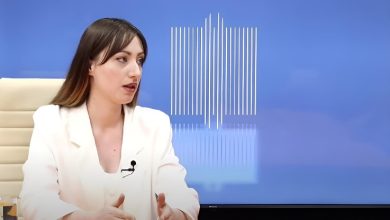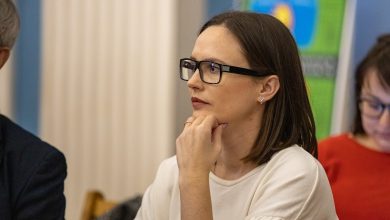Journalism in Times of Hardship: Pandemics, Wars, Fake News, and Whataboutism

Victor Gotișan, media researcher
Where are we and why are we here?
We barely came out of a pandemic and found ourselves in a war that risks blowing up an entire continent. An armed conflict in the heart of Europe, which will most likely change a lot, perhaps even the map of the states of the European continent or that of the whole world.
If from the first catastrophe, the pandemic, the media came out rather scratched, then from the second one, the war in Ukraine, they might come out badly beaten. From the first one, the media got constrained and intimidated in doing their main mission (that of informing the general public), with limitations on access to information, reduction of the advertising market, and an increase in the level of disinformation and manipulation. The outcome of the second one is hard to predict. The fact is that the first conclusions and forecasts do not look good at all.
Both the COVID-19 pandemic and the war in Ukraine brought some mutations in the media sector and even gave birth to new currents. But let’s take them one at a time.
Cataclysms proportionally increase the degree of disinformation
First of all, the two calamities led to an explosion in the level of disinformation. Some colleagues who deal with countering disinformation and fake news told me in interviews that during the COVID-19 pandemic, the degree of disinformation increased practically twice as compared to the period before March 2020.
Since the end of February 2022, however, the degree of disinformation has reached astronomical levels. The war in Ukraine is the first armed conflict that is televised and covered live by thousands and tens of thousands of “journalists” with their phones in hands. The avalanche of information often comes with the proportional increase of fakes and disinformation. As soon as we emerge safely – I hope – from the second cataclysm, we will need a very rapid adjustment of journalism textbooks, especially in terms of media functions. In addition to its classic functions – provision of information, formation of public opinion, advertising, entertainment and education – it will have to include the countering of false information/news (i.e. fake news & disinformation debunking).
Whataboutism – a new current that affected journalism
Secondly, both the COVID-19 pandemic and, especially, the military aggression of the Russian Federation in Ukraine gave birth to a new current: whataboutism. This current has been amplified by the media by the way they presented information and/or by their position regarding certain aspects of the two cataclysms. Romanian writer and journalist Mihai Buzea speaks about dadarism as an indigenous version of the English whataboutism. A brief dictionary definition says that dadarism/whataboutism is the technique by which a difficult question is answered by another question or by jumping to another topic.
We could say that whataboutism is:
- Denial of proven facts.
- Diverting the discussion to something else.
- Taking information out of context.
- Shifting accents from the topic or idea discussed to another topic/idea, often different, just to distract from the original topic or idea.
- When there are no more arguments, they move on to attack the person.
Thus, whataboutism is nothing more than a logical error that is committed by someone deliberately. A logical error like “tu quoque” (from Latin, you also). Whataboutism is ultimately a complex manipulation technique, which tries to refute one’s arguments by attacking their behavior, accusing them of hypocrisy and of the fact that:
- Their behavior is not consistent in other situations;
and
- Their behavior is incompatible with their arguments.
I will try to explain by a personal example. In early April, a few weeks after the start of the Russian military aggression in Ukraine, a friend, who had emigrated years ago, called me. He asked me what was happening in the neighboring country, what the media in Chisinau and in the region were writing about the war, and what the situation on the battlefield was. I told him information from different media sources – national, international, implicitly those controlled by the Kremlin – and I also offered some personal opinions based on the information presented. I described to him the conduct of military actions in the Kiev, Kharkiv, and Kherson regions and the atrocities of the Russian army in Bucea, Gostomel, and Mariupol. At one point, he interrupts me and says, “Yes, but the big culprits are NATO, the US, and … Ukraine. The first two armed the latter. The latter is led by a Jewish nationalist… Russia reacted to defend itself.” I was shocked, but I decided to continue the discussion. “I disagree, what you are saying is false, because, in this case, Ukraine is the country that defends itself, and Russia is the country that invaded and attacked the territory of an independent state. So, Ukrainians do nothing but defend their own country…” To which he makes a whataboutist attack, “Yes, but you are not consistent, why did you not protest a few years ago, when NATO attacked Syria and Afghanistan?” “Well,” I tell him, “We are talking about Russia’s unjustified aggression against an independent state now, not about NATO, Syria, or Afghanistan…”
The discussion with my friend completed a complex circle of whataboutists: denying facts, deflecting discussion, decontextualizing, shifting accents, attacking the person. My friend’s whataboutism tried to discredit my facts and sell me some fakes. Then he shifted accents, bringing up a situation from an entirely different story. In the end, he accused me directly of hypocrisy, without refuting my initial arguments.
Another example of what whataboutism looks like in the same context, of the war in Ukraine, and of how it works, was recently described by the Russian comedian Maxim Galkin in a video published on a social network.
Whataboutism is closely related to what researchers call the “post-truth era.” For whataboutists the truth as such does not exist. There are points of view that everyone has. Their motto is, “Opinions matter, not facts… And, yes, it is only my opinions that matter.”
Once again about press freedom
Thirdly, press freedom has become increasingly challenged. Part of the blame is on us, those who work or have links with the media sector, because we have not yet understood the fact that freedom of the press – like democracy – is not a given from above, but something we have to work for every day. Freedom of the press must be worked on; it is not won once and for all.
We mark the days of press freedom, but we live in a time when the work of the media and the media coverage of reality is as important as it is dangerous. Journalists increasingly face difficult working conditions, financial and political pressures, they are chased and intimidated, subjected to acts of violence, some are imprisoned or even killed just for doing their job honestly, fairly, and professionally.
According to reports of international institutions, such as Freedom House or Reporters Without Borders, over the last decade press freedom has suffered and deteriorated all over the world. The fundamental right to access and disseminate information through an independent press is constantly under attack, and some of these attacks come from a totally unexpected source – established democracies. Over the past few years, the leaders of some states that are supposed to be the fiercest defenders of press freedom have tried to silence the critical voices of media representatives, on the one hand, and to support the media that polish their image, on the other hand. The cause of this trend lies in the decline of democracy globally, and the erosion of press freedom is in fact a symptom of the collapse of democratic institutions and principles.
Quo vadis, or why is trust in the media declining?
The decline of press freedom usually brings about the erosion of trust in the media, too. Over the past 20 years, trust in the media in Moldova has decreased by 10%, according to the Public Opinion Barometer. If in 2001, 55% of respondents said they trusted the media (combined answer of two options: a lot of trust and some trust), then in 2021, the level of trust in the media fell to 45%.
In addition to the decline in press freedom, the erosion of trust in the media in Moldova can be attributed to several other factors. First of all, the erosion of trust is a consequence of the lack of transparency of the REAL owners of media outlets. When one does not know who is behind a media outlet, rumors and assumptions grow, which usually leads to assumptions and interpretations. At the same time, the erosion of trust in the media was also due to the fact that most media outlets are controlled or directly or indirectly owned by politicians and/or political parties, which are at the bottom of the trust ranking and have dragged down the level of trust in the media by association.
There is also a continuing uncertainty regarding the financing of media outlets. So far, there have been no clear and transparent tools to show who finances most media outlets in Moldova.
However, the factor that has had the greatest impact on the erosion of the trust and credibility of the media as an institution is the phenomenon of disinformation and manipulation. When the media manipulate and present false information to the detriment of facts – in other words, when they lie – trust in them can do nothing but decline.




